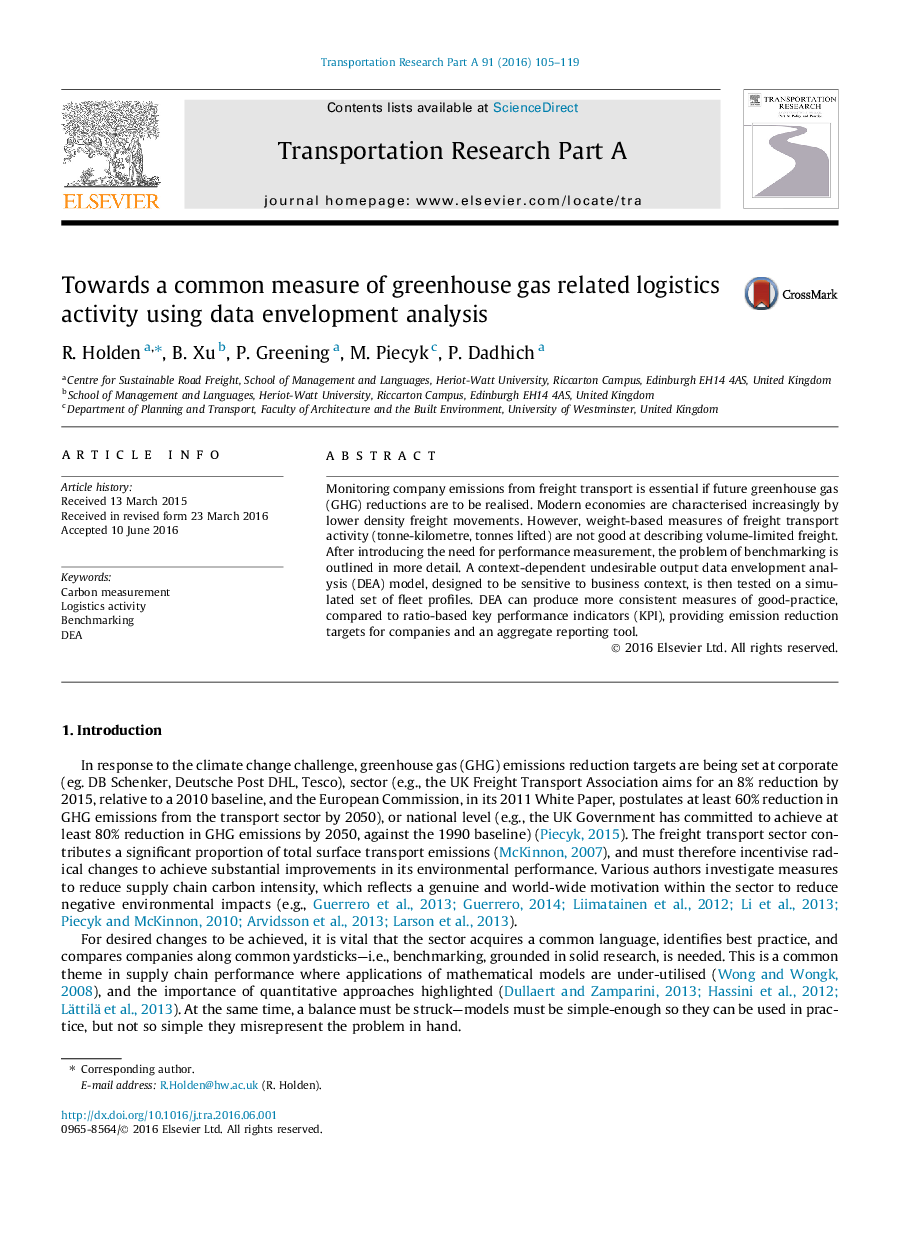| Article ID | Journal | Published Year | Pages | File Type |
|---|---|---|---|---|
| 310370 | Transportation Research Part A: Policy and Practice | 2016 | 15 Pages |
•We use DEA to benchmark road freight companies with different operational traits.•The DEA model is aimed at minimising GHG emissions.•This model is potentially useful as a tool for companies and for aggregate reporting.•Improving fleet operations is more than optimising individual vehicles.
Monitoring company emissions from freight transport is essential if future greenhouse gas (GHG) reductions are to be realised. Modern economies are characterised increasingly by lower density freight movements. However, weight-based measures of freight transport activity (tonne-kilometre, tonnes lifted) are not good at describing volume-limited freight. After introducing the need for performance measurement, the problem of benchmarking is outlined in more detail. A context-dependent undesirable output data envelopment analysis (DEA) model, designed to be sensitive to business context, is then tested on a simulated set of fleet profiles. DEA can produce more consistent measures of good-practice, compared to ratio-based key performance indicators (KPI), providing emission reduction targets for companies and an aggregate reporting tool.
